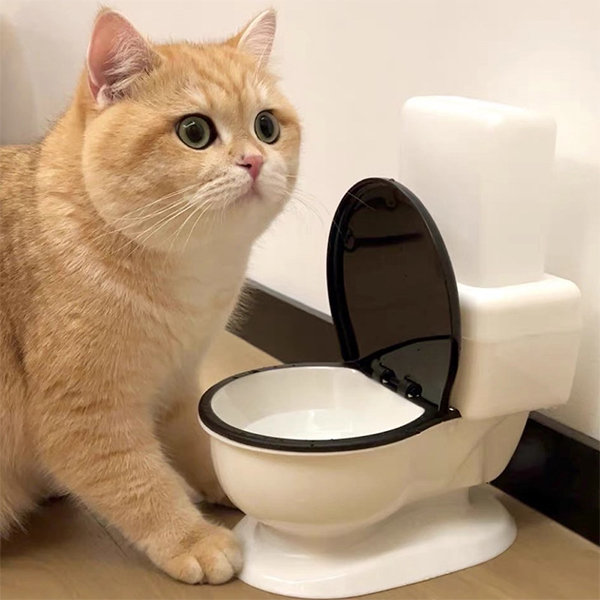Reasons You Should Never Flush Cat Poop Down Your Toilet - Important Information
Reasons You Should Never Flush Cat Poop Down Your Toilet - Important Information
Blog Article
We've stumbled upon this great article about How to Dispose of Cat Poop and Litter Without Plastic Bags directly below on the internet and think it made sense to talk about it with you on this site.

Introduction
As pet cat proprietors, it's necessary to be mindful of exactly how we take care of our feline buddies' waste. While it may seem convenient to purge pet cat poop down the toilet, this practice can have harmful repercussions for both the atmosphere and human health.
Ecological Impact
Purging cat poop presents unsafe microorganisms and parasites right into the water, presenting a considerable threat to water communities. These impurities can negatively affect aquatic life and compromise water top quality.
Health Risks
Along with ecological concerns, flushing feline waste can likewise posture health dangers to people. Pet cat feces may consist of Toxoplasma gondii, a bloodsucker that can cause toxoplasmosis-- a potentially severe disease, specifically for expecting ladies and individuals with weakened immune systems.
Alternatives to Flushing
Fortunately, there are safer and a lot more responsible means to take care of feline poop. Think about the complying with options:
1. Scoop and Dispose in Trash
The most typical approach of taking care of cat poop is to scoop it into a naturally degradable bag and toss it in the trash. Be sure to use a devoted trash inside story and dispose of the waste promptly.
2. Usage Biodegradable Litter
Opt for biodegradable cat trash made from products such as corn or wheat. These clutters are eco-friendly and can be safely disposed of in the garbage.
3. Hide in the Yard
If you have a backyard, take into consideration hiding cat waste in a designated location far from vegetable gardens and water resources. Make certain to dig deep enough to prevent contamination of groundwater.
4. Mount a Pet Waste Disposal System
Purchase a pet dog garbage disposal system specifically made for feline waste. These systems make use of enzymes to break down the waste, reducing odor and environmental influence.
Conclusion
Responsible animal ownership extends past supplying food and sanctuary-- it likewise entails appropriate waste monitoring. By refraining from flushing feline poop down the commode and opting for alternate disposal approaches, we can decrease our ecological impact and secure human health and wellness.
Why You Should Never Flush Cat Poop Down the Toilet
A rose by any other name might smell as sweet, but not all poop is created equal. Toilets, and our sewage systems, are designed for human excrement, not animal waste. It might seem like it couldn’t hurt to toss cat feces into the loo, but it’s not a good idea to flush cat poop in the toilet.
First and foremost, assuming your cat uses a litter box, any waste is going to have litter on it. And even the smallest amount of litter can wreak havoc on plumbing.
Over time, small amounts build up, filling up your septic system. Most litter sold today is clumping; it is made from a type of clay that hardens when it gets wet. Ever tried to scrape old clumps from the bottom of a litter box? You know just how cement-hard it can get!
Now imagine just a small clump of that stuck in your pipes. A simple de-clogger like Drano isn’t going to cut it. And that means it’s going to cost you big time to fix it.
Parasitic Contamination
Believe it or not, your healthy kitty may be harboring a nasty parasite. Only cats excrete Toxoplasma in their feces. Yet it rarely causes serious health issues in the cats that are infected. Most people will be fine too if infected. Only pregnant women and people with compromised immune systems are at risk. (If you’ve ever heard how women who are expecting are excused from litter cleaning duty, Toxoplasma is why.)
But other animals may have a problem if infected with the parasite. And human water treatment systems aren’t designed to handle it. As a result, the systems don’t remove the parasite before discharging wastewater into local waterways. Fish, shellfish, and other marine life — otters in particular — are susceptible to toxoplasma. If exposed, most will end up with brain damage and many will die.
Depending on the species of fish, they may end up on someone’s fish hook and, ultimately on someone’s dinner plate. If that someone has a chronic illness, they’re at risk.
Skip the Toilet Training
We know there are folks out there who like to toilet train their cats. And we give them props, it takes a lot of work. But thanks to the toxoplasma, it’s not a good idea.

I'm very focused on Can You Flush Cat Poo or Litter Down the Toilet? and I am hoping you appreciated our entry. Be sure to take a moment to distribute this content if you enjoyed reading it. Many thanks for your time spent reading it.
Visit Homepage Report this page